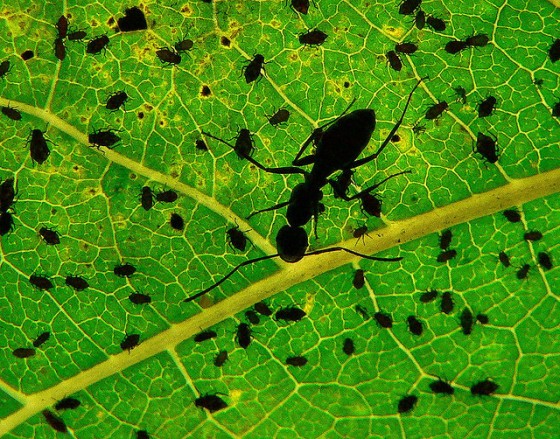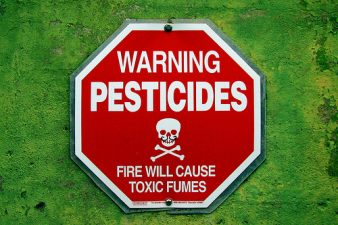 The aphids’ survival technique against chomping mammals may be used against them to spare crops
The aphids’ survival technique against chomping mammals may be used against them to spare crops
Whether we’re trying to ensure public health in Iran or expanding limited water sources in Israel, we’re constantly mining solutions to humanity’s woes. Unfortunately, many businesses leave their ethics at home and invest in ventures, such as pesticides, that are terrible for the environment. Pests are every farmer’s nemesis, but a recent study conducted by the University of Haifa shows that it may not be necessary to spend $1 billion USD to rid crops of these pesky marauders. It may only take a little hot breath.
Jaws of death
Israeli researchers Professor Moshe Inbar, Ph.D student Moshe Gish, and Professor Amotz Dafni were interested to understand how insects called aphids escape the mindless, snapping jaws of goats, sheep, and other mammals.
“Insects that eat plants are often in danger of being swallowed by mistake when a mammal comes along for dinner and eats them along with the leaf or branch,” writes Judy Siegel-Itzkovich with the Jerusalem Post.
Escaping death
The scientists then wondered whether they could discover clues that helped the insects to avoid this unfortunate fate. They did.
“Among them was movement of the branch, a sudden shadow or the mammal’s breath. They found that identifying the breath causes the whole colony of insects to fall immediately to the ground,” according to Siegel-Itzkovich.
Hot air
A sudden whoosh of hot air suggests that a large gobbling emergency may be approaching, and that a sudden exit would be the most effective survival technique. They aren’t able to identify chemicals in the breath, but rather the change in temperature and humidity caused “the aphid colony to abandon ship,” says Siegel-Itzkovich.
Smarter than aphids
“Even though they are very small, aphids developed clever and efficient survival methods when they meet up with animals that are much larger than them,” the University of Haifa researchers wrote.
Scientists may be able to use the aphids’ intelligence against them. Detrimental to agriculture because they settle on plants and suck out all of the liquid, aphids may respond to some kind of natural pesticide that mimics the natural dynamic between animals and insects.
So next time you care to frighten off an insect, breathe on it, and see what happens.
:: image via molajen and story via Jerusalem Post
More Travel and Nature News:



